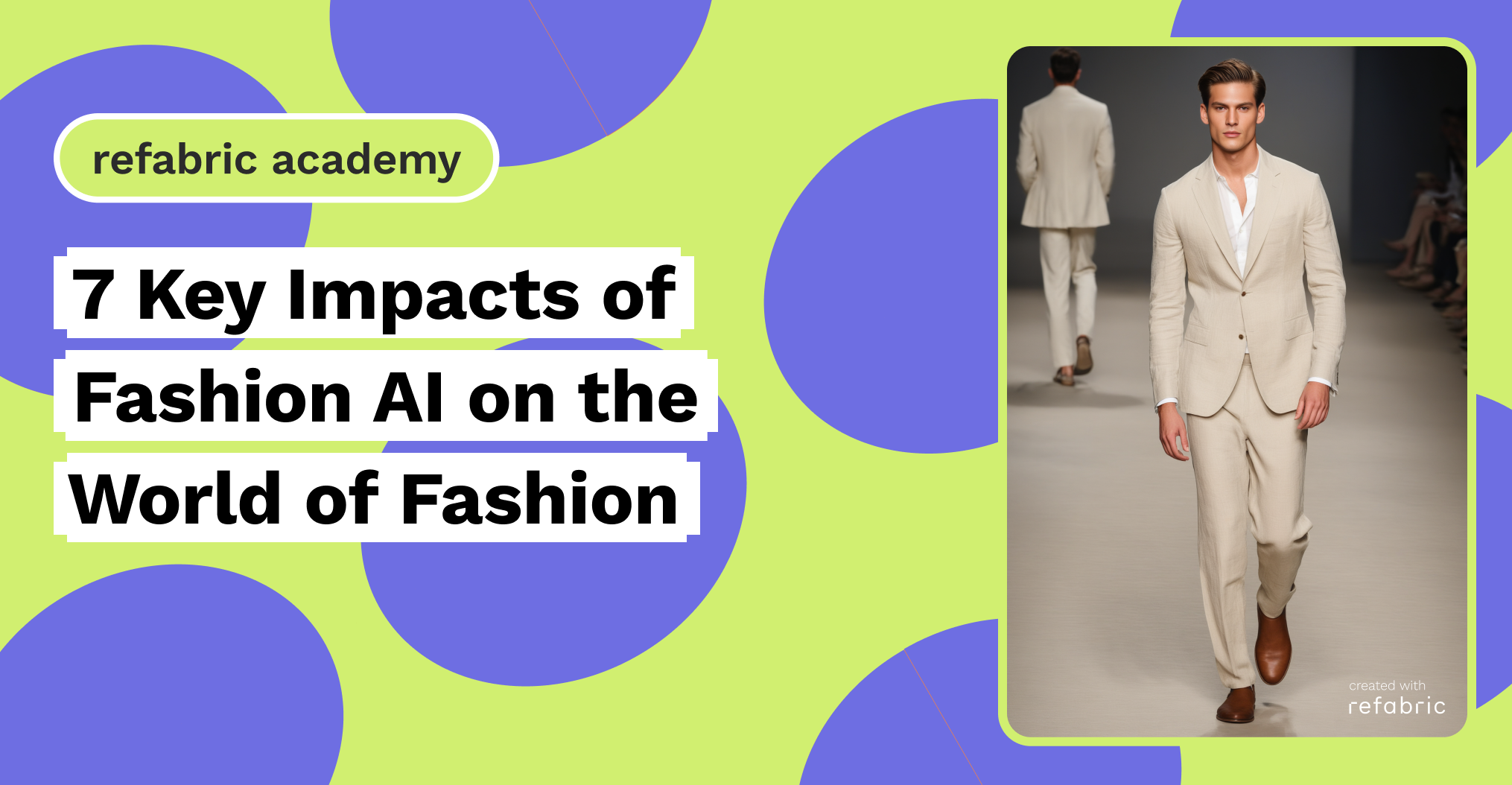From enhancing on-model photography by creating AI-generated models to designing trend-driven fashion, fashion AI is experiencing rapid growth and making significant waves in the industry. Fashion is one of the pioneering sectors experimenting with generating both text and imagery, significantly transforming various aspects of the industry, including the fashion design process, advertising content and customer service.
Transforming the Fashion Design Process
Fashion AI is revolutionizing the design process, as evidenced by brands like Revolve. Through fashion AI, designers can generate innovative and trend-driven designs more quickly and efficiently. AI algorithms analyze vast amounts of data from past collections, social media trends, and consumer preferences to predict upcoming fashion trends. This predictive capability allows designers to stay ahead of the curve, creating designs that resonate with consumers and reduce the time-to-market for new collections.
Enhancing Advertising Content
Brands like Prada Beauty and Chanel Beauty are leveraging AI to enhance their advertising content. AI-generated imagery and text provide these brands with dynamic and engaging content that captures the attention of their target audience. By analyzing consumer behavior and preferences, fashion AI can tailor advertisements to individual users, increasing the effectiveness of marketing campaigns. This personalized approach not only boosts consumer engagement but also drives higher conversion rates.
Improving Customer Service
Fashion AI is also making significant strides in improving customer service within the fashion industry. Zalando, for example, utilizes AI-powered chatbots to assist customers with their inquiries and provide personalized recommendations. These chatbots can handle a wide range of tasks, from answering basic questions to helping customers find the perfect outfit based on their preferences and past purchases. This level of personalized service enhances the overall shopping experience, leading to higher customer satisfaction and loyalty.
AI-Driven Art and Intellectual Property
Gucci is at the forefront of incorporating fashion AI into its artistic endeavors. The brand commissions artists to create art using fashion AI, which utilizes Gucci’s intellectual property. This innovative approach not only showcases Gucci’s commitment to blending tradition with technology but also opens new avenues for artistic expression. By leveraging fashion AI, Gucci can explore unique and avant-garde designs that captivate their audience and set new trends in the fashion world.
AI-Powered Product Recommendations
Parent company Kering is experimenting with a chat tool that leverages fashion AI to make product recommendations. This tool analyzes customer data and preferences to provide personalized suggestions, enhancing the shopping experience. By offering tailored recommendations, Kering can increase customer satisfaction and drive sales, showcasing the potential of fashion AI in boosting e-commerce performance.
Collaborative Efforts in Fashion AI Research
Luxury conglomerate LVMH is collaborating with Stanford University’s Institute for Human-Centered Artificial Intelligence to explore fashion AI applications. This partnership aims to harness the power of fashion AI to develop innovative solutions that enhance various aspects of the fashion industry. By combining academic research with industry expertise, LVMH is paving the way for groundbreaking advancements in fashion AI.
The Growing Demand for AI Solutions
Brands and retailers are increasingly seeking AI-driven solutions to stay competitive in the fast-paced fashion industry. Jackie Trebilcock, managing director of retail accelerator New York Fashion Tech Lab, emphasizes the growing interest in AI among established brands and retailers. The lab matches startups with established brands and retailers, facilitating the adoption of cutting-edge fashion AI technologies. Past participants, including LVMH, Richemont, and Burberry, have benefited from these collaborations, highlighting the potential of fashion AI to drive innovation and growth in the fashion sector.
The integration of fashion AI into the fashion industry is not just a trend; it is a transformative force that is reshaping how brands design, market and sell their products. From enhancing the design process and advertising content to improving customer service, fashion AI offers a myriad of benefits that drive efficiency and innovation. As brands and retailers continue to embrace fashion AI, the future of fashion promises to be more dynamic, personalized, and technologically advanced than ever before.
